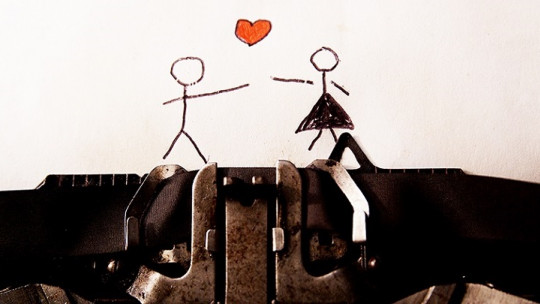
Many people make the mistake of assuming that love and falling in love are essentially synonyms, and that a person who has a partner for whom they feel love is, in fact, a person in love.
Although it is true that in popular culture both terms are often used interchangeably, in reality they do not refer to the same type of phenomenon. In fact, in relationships that last long enough to stabilize, it is normal for falling in love to fade over time. And, in fact, this is not a negative thing in itself. Let’s see why in this article that revolves around the topic of why we fall out of love and why that is normal.
What do we understand by falling in love?
Falling in love can be defined as an experience of emotional bonding with a specific person, in which we experience an intense feeling of emotional-sexual attraction, our attention is fixed on them and, in situations in which they are close or we imagine them in a different way, vivid, we experience a mixture of joy and euphoria. On the other hand, the sexual component is usually common in this type of experience, but in some cases it becomes very slight or may even be negligible, as occurs in asexual people who only feel an element of emotional disconnection.
However, Falling in love does not mean that we actively seek to interact with that person for whom we feel an intense attraction In many cases, an emotional ambivalence appears in which the desire to be with that person is combined with the fear of rejection or of generating a bad image; The pressure not to push that person away means that quite a few people try to avoid attracting the attention of the person they are attracted to, constantly postponing the moment of “taking the plunge.”
Thus, what is common to all cases of falling in love is that interacting with the person with whom one has fallen in love generates an intense emotional discharge with a strong pleasurable component to which fear is sometimes added ( in the early stages, when the relationship has not been established and there is the possibility of unrequited love), and also the tendency to think a lot about that person and to adapt many of the day-to-day routines to the possibility of being able to contemplate or contemplate them. Contact with her.
Let’s say that, in falling in love, both our thoughts and our senses align to address everything that has to do with contemplating that person we are attracted to, and if possible, liking them too. As a result of that, Idealization of the person we fall in love with is usually common by interpreting everything he does in the most optimistic and benevolent way possible.
Why do we fall out of love in established relationships?
Although today it is clear that love is beyond purely biological processes and we experience it through a series of values and expectations of life plans as a couple, there is no doubt that the reason for the hormonal processes in the that is based are linked to the reproduction processes.
That is to say, if there are patterns of nervous and hormonal activation that we can easily identify with falling in love, it is because hundreds of thousands of biological evolution have given rise to these phenomena to facilitate reproduction the succession from one generation to the next.
With this in mind, it makes sense that falling in love is something temporary; Let’s say that the behavior patterns to which this first stage of the emotional union between two people predisposes us cease to be useful when the relationship has already been consolidated, or at least have a cost that is too high for it to be efficient to keep them active in Our day to day.
For example, falling in love makes us pay a lot of attention to the image of ourselves that we give to the other person. Is this useful when two people have been dating for more than a year? Probably not; Much of the time and energy invested in disguising our imperfections could have been used for other, more important purposes at the time.
In the same way, the passion with which people in love undertake their sexual life when living together can be reduced when, after the passage of months, it becomes clear that “there is no rush” to reproduce, because if that union has lasted all that time, time there is a good chance that it will continue from then on, or at least it is unlikely to end anytime soon. Let us remember that all of these are logics carved by natural evolution, not by culture, and that consequently they have reproduction as their ultimate goal, and not the happiness of people.
All this explains why, generally, the falling in love phase lasts less than a year; Approximately it develops from the beginning of the relationship until five or six months in conditions and constant interaction or coexistence.
The evolution of couple relationships
Now that we have seen why falling in love is fleeting, it is time to remember that there is life (as a couple) after this stage of the relationship. Let’s see, in summary, what the development of couple relationships is.
1. Attraction and falling in love
In general, Fall in love does not appear from the first minute of seeing a person we are attracted to for the first time, but it does not take much longer to appear It is usually necessary to know them minimally to begin to create a half-real and half-imaginary image of their way of being, their values, their interests, etc. And from this idealized image of that person, falling in love and the intense desire to be with them appears.
2. First crises
In this transition phase, disappointments and disappointments are common, since people realize that the idealized image they had of the other does not correspond to reality However, it does not have to mean the end of the relationship, and it gives the opportunity to meet a complex human being full of nuances, someone who is perhaps more stimulating to know in depth and who goes beyond the version. simple” that one had of the other in the phase of falling in love.
3. Love based on commitment
After falling in love, an experience appears that is more similar to what we conventionally understand by love: an emotional bond that remains strong, but is not based so much on passion, but rather on the desire to establish a common life project based on trust and mutual support, and putting more effort into genuinely understanding the other and being understood at a deep level.
Are you interested in having professional psychological assistance?
If you want to have psychotherapy services aimed at individual patient-to-patient care, or if, on the contrary, you are interested in starting a couples therapy process, I invite you to contact me.
Am Carolina Marin General Health Psychologist federated by the FEAP, and I offer in-person and online sessions by video call.








